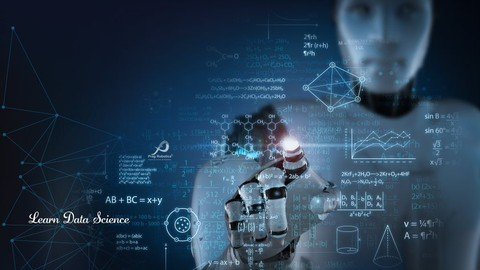
Published 12/2023
MP4 | Video: h264, 1920×1080 | Audio: AAC, 44.1 KHz
Language: English | Size: 4.11 GB | Duration: 7h 13m
Building Data Science Pipelines
What you’ll learn
Definition of Data Science
Data Collection & Pre-processing
Statistics
Predictive Modelling
Requirements
None
Description
Data science is a multidisciplinary field that uses a combination of techniques, algorithms, processes, and systems to extract meaningful insights and knowledge from structured and unstructured data. Data science is of significant importance in today’s world due to its transformative impact on various aspects of business, research, and decision-making. It incorporates elements of statistics, computer science, domain expertise, and data analysis to analyse and interpret complex data. Data science enables organizations to make informed decisions based on data analysis rather than relying solely on intuition or experience. This leads to more accurate and effective decision-making processes. During this course, students will learn the entire process of developing a data science project. During this course, students will learn the nuances of Data science, data collection, data cleaning, data visualization, Significance of statistics and Machine learning etc. We will be using r programming language to develop data pipelines. R is a programming language and environment specifically designed for statistical computing and graphics. It is open-source and widely used by statisticians, data scientists, researchers, and analysts for data analysis, statistical modelling, and visualization. R has a rich ecosystem of packages and libraries that extend its functionality. These packages cover a wide range of domains, from machine learning and data manipulation to bioinformatics and finance. So, let’s buckle up!!!
Overview
Section 1: About the Program
Lecture 1 Course Introduction
Lecture 2 Course Outline
Section 2: Introduction to Data Science
Lecture 3 What is Data Science?
Lecture 4 What is Data?
Lecture 5 What’s the Job with Data
Lecture 6 Data Science Tools & Technologies
Lecture 7 Data Science Process Flow
Lecture 8 Applications of Data Science
Section 3: Foundations of R
Lecture 9 Introduction to R Language
Lecture 10 Installation of R Language and R Studio
Lecture 11 Handling R Environment
Lecture 12 Setting Working Directory
Lecture 13 Data Types and Variables
Lecture 14 Arithmetic Operations
Lecture 15 Data Frames
Section 4: Data Collection
Lecture 16 Data Science Methodology
Lecture 17 Data Collection Techniques
Lecture 18 Introduction to Web Scraping
Lecture 19 Web Scraping Using R Language
Section 5: Data Pre-processing
Lecture 20 Significance of Data Pre-processing
Lecture 21 Checking Data Formats
Lecture 22 Handling Missing Data
Lecture 23 Handling Categorical Data
Lecture 24 Outlier Analysis
Lecture 25 Data Scaling
Section 6: Descriptive Statistics
Lecture 26 Significance of Statistics in Data Science
Lecture 27 Descriptive Statistics Tools for Data Science
Lecture 28 Measure of Central Tendency
Lecture 29 Variation in Data
Lecture 30 Association of Variables
Section 7: Inferential Statistics
Lecture 31 What is Inferential Statistics?
Lecture 32 Confidence Intervals
Lecture 33 Confidence Intervals in R Language
Lecture 34 Student T-Distribution
Lecture 35 T-Test in R Language
Lecture 36 Hypothesis Testing
Lecture 37 Hypothesis Testing in R Language
Section 8: Predictive Modelling
Lecture 38 What is Predictive Analytics?
Lecture 39 Introduction to Linear Regression
Lecture 40 Simple Linear Regression in R Language
Lecture 41 Introduction to Multiple Linear Regression
Lecture 42 Multiple Linear Regression in R Language
Section 9: Classification
Lecture 43 Introduction to Classification Models
Lecture 44 Introduction to Logistic Regression
Lecture 45 Implementation of Logistic Regression
Lecture 46 Introduction to Random Forest Classification
Lecture 47 Random Forest Classification in R Language
Section 10: Dimensionality Reduction
Lecture 48 Introduction to Dimensionality Reduction
Lecture 49 Introduction to Principle Component Analysis
Lecture 50 Principle Component Analysis in R Language
Section 11: About the Program
Lecture 51 Course Conclusion
Anyone interested in the field of Data Science
Password/解压密码www.tbtos.com